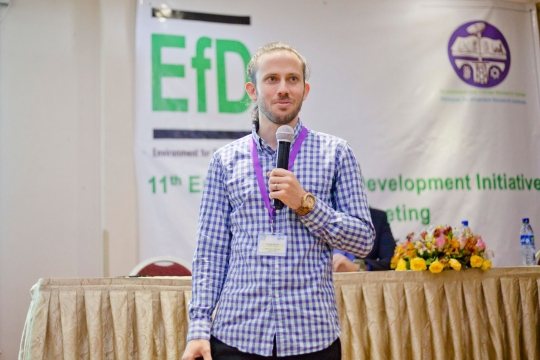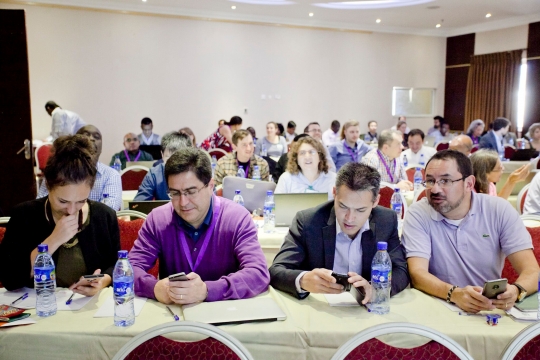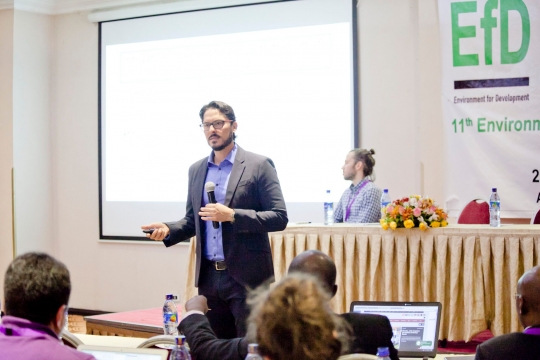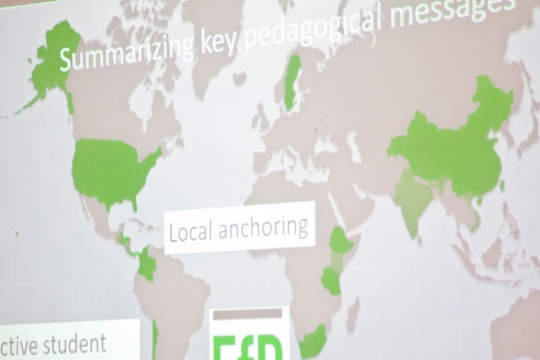With the goal to “teach climate change to our future leaders,” Francisco Alpízar of Costa Rica and Erik Sterner Erik Sterner, doctoral candidate at Chalmers University, Sweden, introduced EfD’s international graduate program in Climate Change and Environmental Economics.
“This global classroom idea, for me, is a dream come true,” said Alpízar, a senior researcher and deputy director at CATIE, the EfD Center in Central America. “What we want here is to have classrooms that span the world.”
Starting with pilot classes in January, 2018, the graduate program will link local and international students and teachers with “hands on experience and case studies” in applying the tools of environmental economics to critical issues such as green energy, food security, and water scarcity. “We need to be focused on what sort of skills our students need” to solve these problems, Alpízar explained. “We want active, collaborative learning.”
When international students meet together in one room, Alpízar added, “it erases borders” and makes students see each others’ perspectives. The different viewpoints were obvious when climate scientist Erik Sterner asked a fairness question about how commitments to reduce greenhouse gas emissions should be shared between wealthy, high-emitting countries and poor countries that need energy for economic growth.
Erik Sterner also used graphs and pictures to make sure that the economists at the meeting understood the complex relationship between carbon emissions and the ability of the earth to take up and store carbon. Instructors all over the EfD network can share these lesson plans, said Mr. Sterner. These teaching modules can be used like “Lego” pieces to fit into existing university courses and degree programs, added Dr. Alpízar.
By: Cyndi Berck




